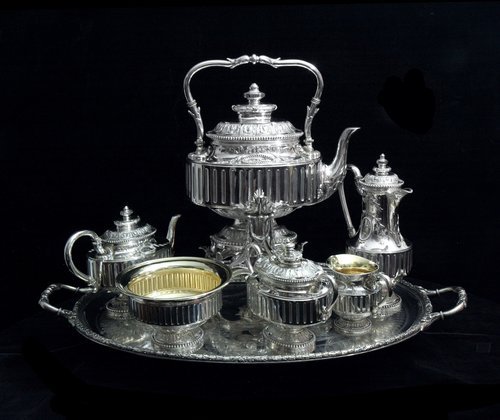When it comes to buying antiques, one of the most important steps is understanding the true value of the item. While the allure of finding a “hidden gem” at a flea market or estate sale is exciting, without an appraisal, you may end up overpaying or misjudging the authenticity of the piece. Let’s explore why appraisals are crucial, how to find a trustworthy appraiser, and what you should expect from the process.
1. Why Are Appraisals Important?
An appraisal provides an expert opinion on the value, authenticity, and quality of an antique. Here’s why appraisals matter:
- Determining True Value: Appraisals help you understand what an antique is truly worth based on its condition, age, provenance, and demand. This prevents overpaying for an item that may not be as valuable as it seems.
- Verifying Authenticity: A qualified appraiser can determine whether the antique is genuine or a reproduction. This ensures you are buying an authentic piece with historical significance rather than a replica that lacks value.
- Insurance Purposes: If you plan to insure your antiques, an appraisal is necessary. It provides documentation of the item’s value, which is crucial if you need to claim due to loss or damage.
- Investment Guidance: If you view antiques as an investment, an appraisal can guide you on whether a particular item is likely to be appreciated over time, helping you make informed buying decisions. For an antique buyer in Nassau County, this information can be invaluable when selecting pieces for their collection.
2. How to Find a Reliable Appraiser
Not all appraisers are created equal, and finding a trustworthy expert is essential to get an accurate valuation. Here are some tips for finding a qualified appraiser:
- Ask for References and Experience: A reputable appraiser should have experience in valuing the specific type of antique you’re interested in. Don’t hesitate to ask for references or inquire about their specialization—whether it’s furniture, artwork, or collectibles.
- Check for Conflict of Interest: A professional appraiser should not have a financial interest in the antique. Avoid appraisers who offer to buy the item from you or sell it on your behalf, as this could lead to biased evaluations.
- Consider Costs: Appraisers charge different fees based on their experience and the complexity of the appraisal. Be sure to discuss fees upfront, whether they charge an hourly rate or a flat fee. Avoid appraisers who charge based on a percentage of the item’s value, as this can create a conflict of interest.
See Also: How to Optimize Free Online Tools for Maximum Efficiency in Your Business
3. What to Expect from the Appraisal Process
The appraisal process involves several steps, and understanding what to expect can help you prepare and ensure you get the most accurate valuation:
- Initial Consultation: The appraiser may ask for information about the antique, such as where and how it was acquired, any paperwork or provenance, and visible details about its condition. This initial consultation can help the appraiser determine whether they can assist you.
- Physical Examination: A thorough examination is crucial to determine the authenticity and condition of the piece. This may include inspecting the maker’s marks, materials, craftsmanship, and signs of aging. The appraiser may use tools like UV lights to detect repairs or alterations.
- Research and Analysis: After the physical examination, the appraiser will conduct research. This includes comparing similar items sold at auction, referencing historical sales records, and considering the market demand for the item.
- Appraisal Report: The final product of the appraisal process is a detailed report. This document should include a description of the item, its condition, provenance, and the appraised value. The report may also include photographs of the item and notes on how the valuation was determined.
4. When Should You Get an Antique Appraised?
Knowing when to get an antique appraised is just as important as knowing how to do it. Here are a few scenarios where an appraisal is particularly beneficial:
- Before Purchase: If you’re considering buying a high-value antique, getting an appraisal beforehand can help you negotiate the price and confirm the piece’s authenticity.
- For Insurance Coverage: Once you’ve purchased an antique, you may want to insure it. An appraisal will provide an accurate valuation, which is necessary for determining insurance coverage.
- Estate Planning or Resale: If you’re planning to pass down antiques as part of an inheritance or considering selling them, an appraisal will help you understand their value and ensure fair distribution or resale pricing.
Conclusion
Antique appraisals are essential for any buyer looking to make informed decisions. Whether you’re verifying authenticity, determining value, or planning for insurance, an appraisal offers the peace of mind that comes from knowing exactly what you’re dealing with. By choosing a reliable appraiser and understanding the appraisal process, you can navigate the antique market with confidence and ensure you’re making a worthwhile investment.
FAQs
1. What does an antique appraisal include?
An antique appraisal includes an expert’s evaluation of the item’s value, authenticity, and condition. It often comes with a detailed report that includes photographs, a description, and the factors influencing the valuation.
2. How much does an antique appraisal cost?
The cost of an appraisal varies based on the appraiser’s experience and the complexity of the piece. Appraisers may charge an hourly rate or a flat fee. It’s important to discuss fees upfront before proceeding.
3. Can I appraise an antique myself ?
While you can do some initial research on your own, such as identifying maker’s marks or comparing online prices, an expert appraisal is necessary for an accurate valuation, especially for high-value items.



